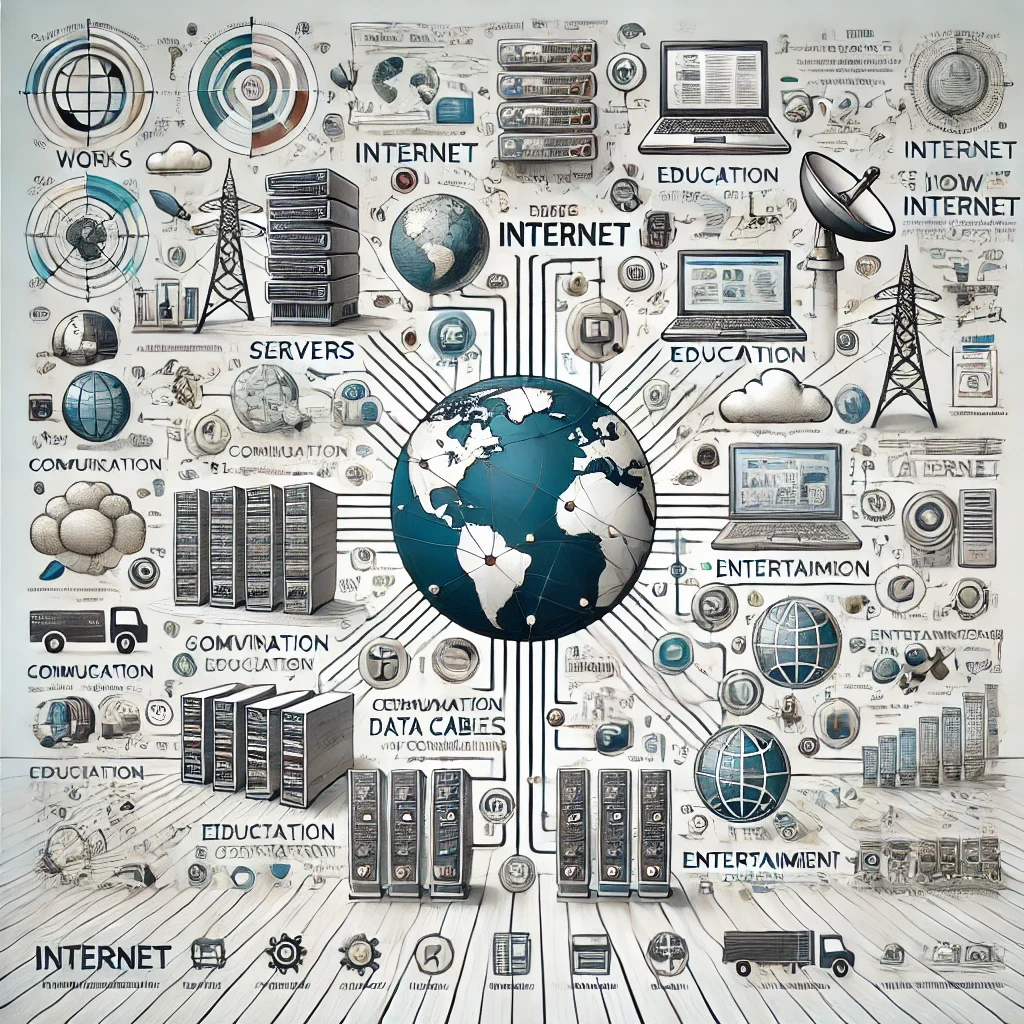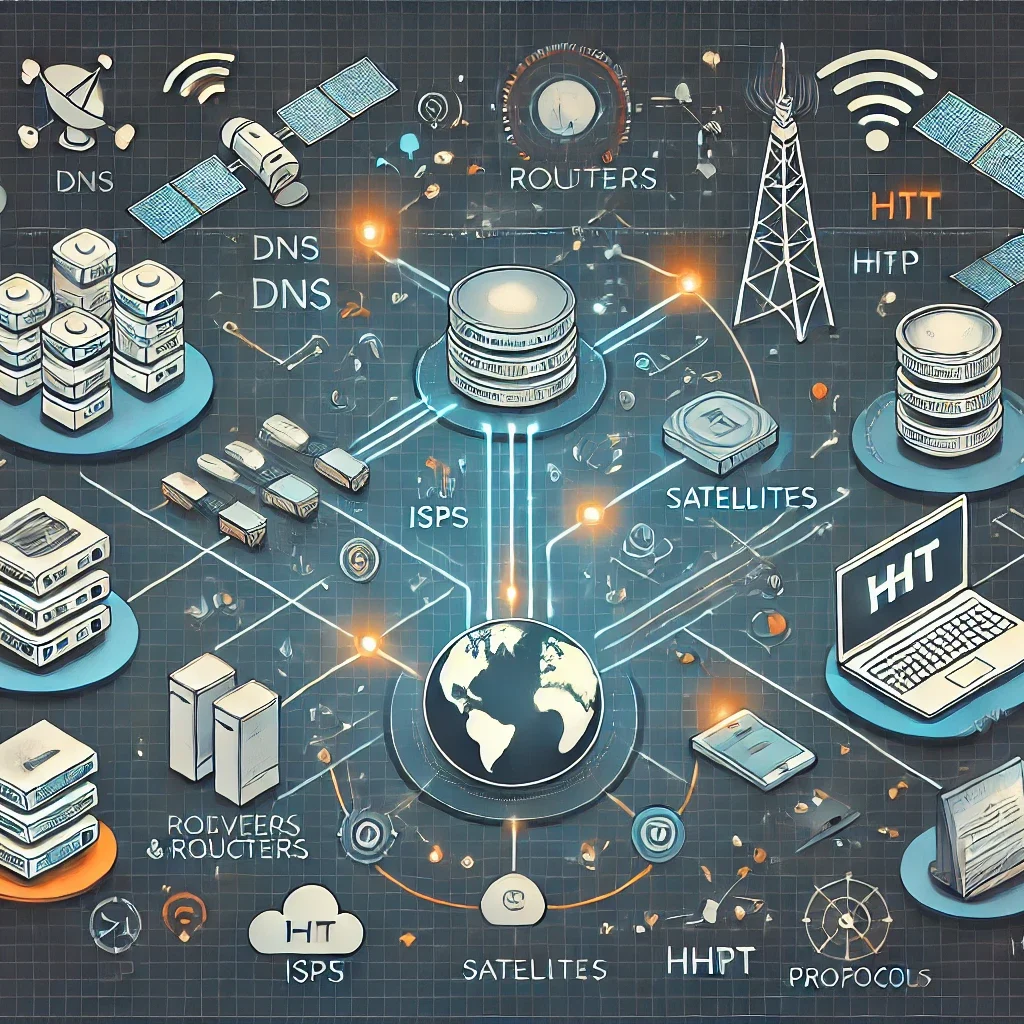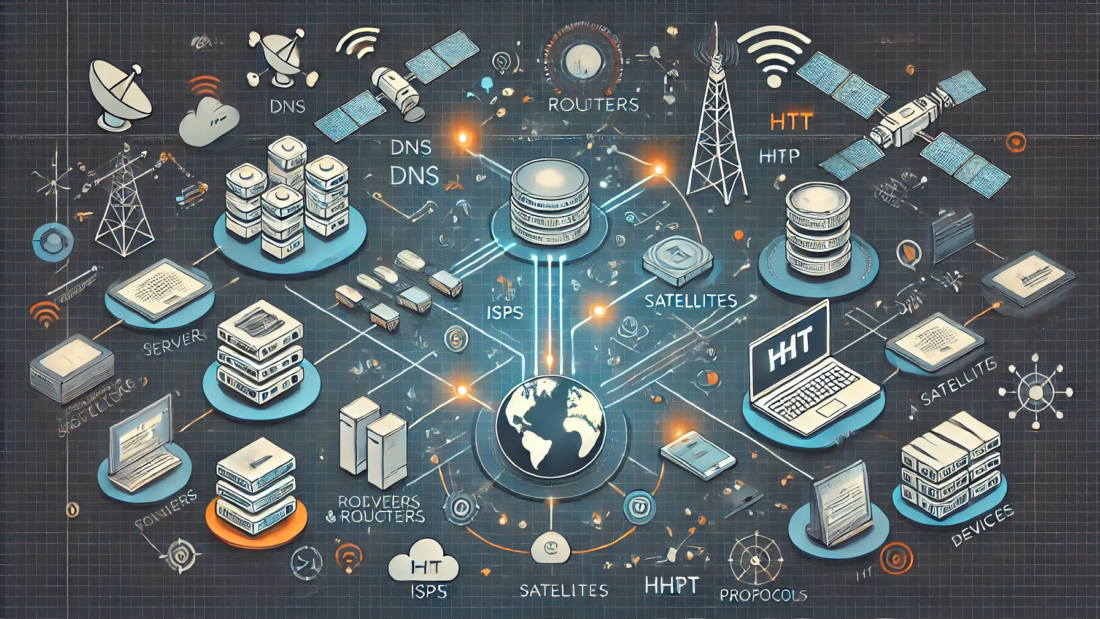The internet is a crucial part of our lives, connecting people, businesses, and devices worldwide. But what exactly is it, how does it work, and why is it so important? This blog will break down the basics, its uses, and its impact on society.

What is the Internet?
The internet is a global network of computers and devices. It lets users share information and communicate across the world. It connects smaller networks and servers using various technologies and rules.
How the Internet Works: Key Uses & Key Sectors Explained
How the Internet Work:
The internet works through layers of technology and infrastructure. Here’s a simplified explanation:
- Infrastructure: Physical hardware like servers, routers, cables, and satellites transmit and receive data
- Data Transfer Protocols: Protocols like HTTP and TCP/IP set the rules for sending and receiving data. TCP/IP is the main system for communication.
- DNS (Domain Name System): DNS changes website names into numerical IP addresses, so users don’t need to remember long numbers.
- ISPs (Internet Service Providers): ISPs connect users to the internet.
- Client-Server Model: Your device (client) sends a request to a server, which sends back the information you need.
Uses of the Internet
The internet has transformed many aspects of life. Here are some key uses:
- Communication: Email, messaging apps, and social media connect people instantly.
- Education: Online learning platforms like Coursera and YouTube provide access to courses and information.
- Entertainment: Streaming services like Netflix and YouTube allow on-demand access to movies, music, and games.
- Business and E-Commerce: Companies use the internet for online shopping, marketing, and managing customer data.
- Information and Research: Search engines and online libraries make finding information easy.
Sectors Impacted by the Internet
The internet has changed how industries work. Here are some examples:
- Healthcare: Telemedicine and patient portals provide remote access to healthcare.
- Education: E-learning platforms support students and teachers.
- Finance: Online banking and digital payments make transactions faster and simpler.
- Retail and E-commerce:Businesses use e-commerce to sell products and reach customers worldwide.
- Media and Entertainment: Streaming and social platforms have replaced traditional TV and print media.
Additional Insights
- The Internet of Things (IoT): IoT connects everyday devices, like smart appliances, to the internet.
- Cybersecurity: As the internet grows, protecting data from hackers is vital.
- 5G Technology: 5G makes the internet faster, supporting new technologies like augmented reality.

The internet relies heavily on server-side technologies to manage requests and deliver content efficiently. One popular technology is Node.js, a powerful JavaScript runtime for building scalable server applications. Learn more about it in this introductory guide to Node.js.
Go to techvalvi.com and search for articles or resources related to the internet, web technologies, or other relevant topics (like cybersecurity, internet infrastructure, tech trends, etc.).
